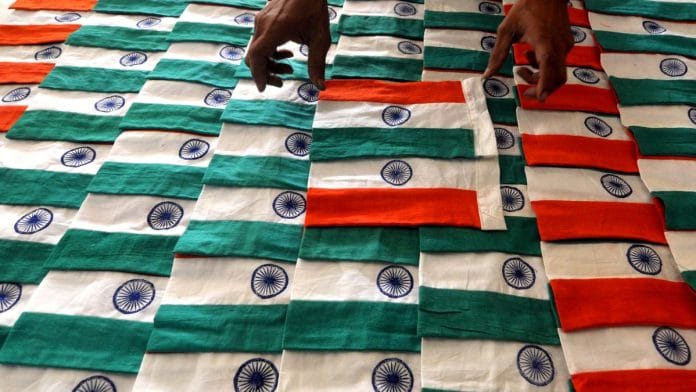As the debate around the nation’s name heats up in India, it has found takers across the border in Pakistan, where there will be much delight if the name is changed to Bharat.
Names of streets and cities keep getting changed on both sides of the border, but it will be a major step for India to move away from its primary recognition around the world.
The Bharatiya Janata Party (BJP) government may have its reasons for pushing the change but Pakistan’s establishment has wanted India to take the name Bharat since 1947. Reportedly, Pakistan’s founding father Mohammad Ali Jinnah was upset with India’s former Prime Minister Jawaharlal Nehru for not naming the country Hindustan or Bharat. Jinnah’s explanation was that ‘India’ not only denoted the colonial legacy but also indicated that the larger country in the Subcontinent had inherited the historical legacy instead of the newly created Pakistan. For Jinnah, this represented New Delhi’s one-upmanship. Jinnah’s fears were then passed on to later governments, which saw how the name ‘India’ worked for its enemy and against Pakistan’s interests.
Battle over ‘India’
In the early years after Independence, Pakistan found to its disadvantage that a number of Muslim states, such as Indonesia, Malaysia and Egypt viewed it as part of the British colonial ploy to break up India.
While Pakistan’s earlier leadership, including Jinnah, struggled to establish a state for Muslims and present its Muslimness, there was a parallel effort to portray India as a state for Hindus of the Subcontinent and not secular. Indeed, it was part of the formula on which the Subcontinent was divided. However, the political division did not materialise into creating a distinct identity that would naturally establish Pakistan’s raison d’etre – a state formed because the Muslims in the Subcontinent couldn’t live in a Hindu state. The fact that millions of Muslims stayed back in India and considered it their own, despite frequent instances of communal violence, posed a constant sociopolitical challenge.
For India, it was about managing communal ties and presenting itself as a successful secular state. For Pakistan, it meant that India wasn’t failing, thereby indicating that Pakistan wasn’t viewed as the alternative to Hindu majoritarianism for the Muslim population. In some respect, the battle between both the countries over ‘India’ is linked with the desire to see each other eliminated.
Also read: We were India since Alexander’s time. Why drag the British into it?
Indian Subcontinent’s legacy
For the last 76 years, Pakistan has been engaged in an existential battle with India that extends beyond military security. It’s about constantly proving its worth as a nation juxtaposed to the neighbour next door. I am reminded of a conversation years ago with Pakistan’s defence attaché in London, who later became the Director-General (Analysis) in the Inter-Services Intelligence. I got a call from Brigadier Javed Alam asking what I was doing then. I responded that I was working on my doctoral thesis and a chapter titled ‘threat perception in the Indian Subcontinent’. There was surprise in his voice as he asked me if I thought that the Subcontinent was Indian. My answer was that it was as Indian as the Indian Ocean and that I had said the Indian Subcontinent not India’s Subcontinent.
Understanding the complex dynamics of Pakistan’s relationships with its neighbors, particularly in the context of regional security, is crucial for grasping the broader implications of its interactions with India.
While I ignored this conversation then, I later realised that it wasn’t a random comment that the defence attaché had made but something that constantly bothered the establishment. How could India be allowed to represent a historical legacy entirely, especially when Pakistan could take the place?
In 1997, the Pakistan People’s Party leader and lawyer Aitzaz Ahsan provided an answer by writing his book The Indus Saga and the Making of Pakistan. The argument of his book was that it was Pakistan that represented the Indus civilisation that India had claimed with its name and projected a certain version of history. This wasn’t entirely untrue as the ‘father of all rivers’ or ‘Abaseen’, as the Pashtuns and Afghans call the Indus River, flows through Pakistan.
Of course, there are huge gaps in this claim, as state historians have never owned any aspect of the Indus civilisation and its culture. The state narrative has only owned the Arab invasion or the Central Asian invasions. The Buddhists and Hindus, integral to the Indus, were never part of the conversation. However, the urge to offer more than the bigger next-door neighbour has always been there in Pakistan.
The debate on ‘Bharat’ in India imagines an equally exclusive identity. More importantly, this idea finds support in Pakistan because it symbolises an exclusive identity of the majority community instead of being inclusive and representative of a larger Indus civilisation.
If the name change happens, it will be a wish come true for Pakistan—a sign that ‘India’ does not represent all. Sadly, this is about majoritarian politics underwriting history and memory in the Subcontinent, which will have deeper repercussions.
Ayesha Siddiqa is Senior Fellow at the Department of War Studies at King’s College, London. She is the author of Military Inc. She tweets @iamthedrifter. Views are personal.
(Edited by Ratan Priya)






